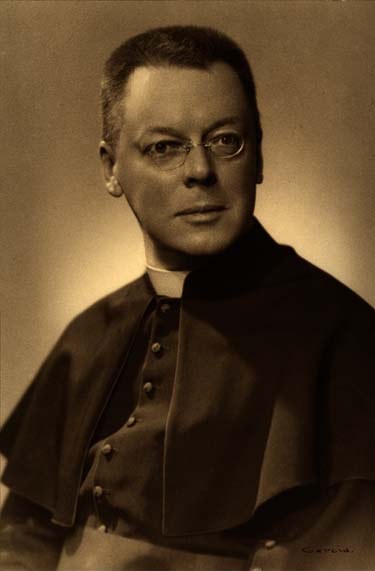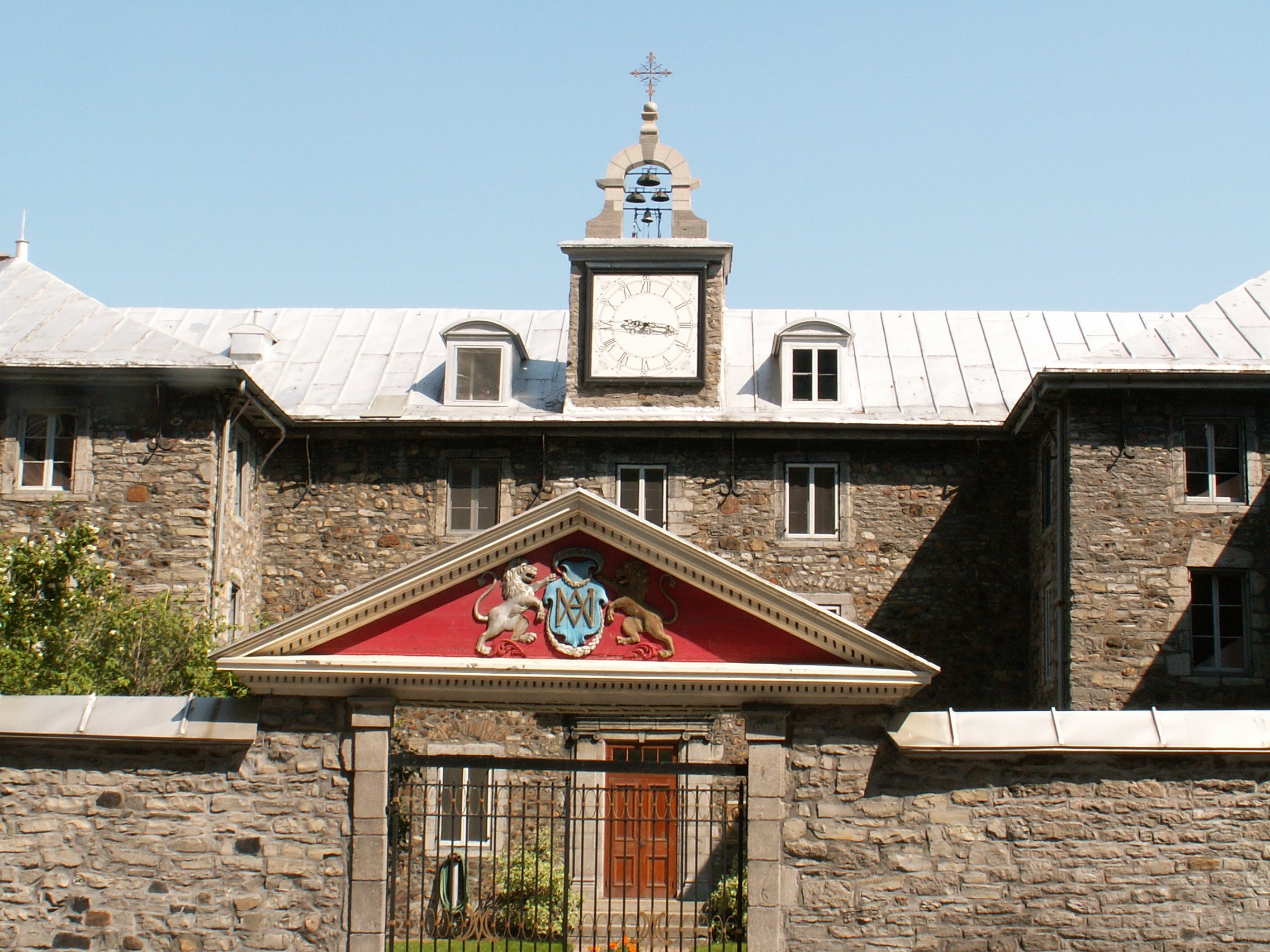|
Olivier Maurault
Monsignor Olivier Maurault, CMG, FRSC (1 January 1886 – 14 August 1968) was a Canadian historian, priest of the Society of the Priests of Saint Sulpice, and academic administrator. He was Rector of the Université de Montréal from 1934 to 1955. He was President of the Royal Society of Canada The Royal Society of Canada (RSC; , SRC), also known as the Academies of Arts, Humanities, and Sciences of Canada (French: ''Académies des arts, des lettres et des sciences du Canada''), is the senior national, bilingual council of distinguishe ... in 1943–1944. References * https://www.patrimoine-culturel.gouv.qc.ca/rpcq/detail.do?methode=consulter&id=8534&type=pge * https://dx.doi.org/10.7202/1012942ar 1886 births 1968 deaths Université de Montréal Sulpicians Fellows of the Royal Society of Canada 20th-century Canadian historians Canadian historians of religion Canadian art historians Canadian Companions of the Order of St Michael and St George Canadian academic ... [...More Info...] [...Related Items...] OR: [Wikipedia] [Google] [Baidu] |
Historian
A historian is a person who studies and writes about the past and is regarded as an authority on it. Historians are concerned with the continuous, methodical narrative and research of past events as relating to the human species; as well as the study of all history in time. Some historians are recognized by publications or training and experience.Herman, A. M. (1998). Occupational outlook handbook: 1998–99 edition. Indianapolis: JIST Works. Page 525. "Historian" became a professional occupation in the late nineteenth century as research universities were emerging in Germany and elsewhere. Objectivity Among historians Ancient historians In the 19th century, scholars used to study ancient Greek and Roman historians to see how generally reliable they were. In recent decades, however, scholars have focused more on the constructions, genres, and meanings that ancient historians sought to convey to their audiences. History is always written with contemporary concerns and ancient hist ... [...More Info...] [...Related Items...] OR: [Wikipedia] [Google] [Baidu] |
Society Of The Priests Of Saint Sulpice
The Society of Priests of Saint-Sulpice (; PSS), also known as the Sulpicians, is a society of apostolic life of Pontifical Right for men, named after the Church of Saint-Sulpice, Paris, where it was founded. The members of the Society add the nominal letters PSS after their names to indicate membership in the Congregation. Typically, priests become members of the Society of the Priests of St. Sulpice only after ordination and some years of pastoral work. The purpose of the society is mainly the education of priests and to some extent parish work. As their main role is the education of those preparing to become priests, Sulpicians place great emphasis on the academic and spiritual formation of their own members, who commit themselves to undergoing lifelong development in these areas. The Society is divided into three provinces, operating in various countries: the Province of France, Canada, and the United States. In France The Society of Priests of Saint Sulpice was founded in F ... [...More Info...] [...Related Items...] OR: [Wikipedia] [Google] [Baidu] |
Université De Montréal
The Université de Montréal (; UdeM; ) is a French-language public research university in Montreal, Quebec, Canada. The university's main campus is located in the Côte-des-Neiges neighborhood of Côte-des-Neiges–Notre-Dame-de-Grâce on Mount Royal near the Outremont Summit (also called Mount Murray), in the borough of Outremont, Quebec, Outremont. The institution comprises thirteen faculties, more than sixty departments and two affiliated schools: the Polytechnique Montréal (School of Engineering; formerly the École polytechnique de Montréal) and HEC Montréal (School of Business, formerly École des Hautes études commerciales). It offers more than 650 undergraduate programmes and graduate programmes, including 71 doctoral programmes. The university was founded as a satellite campus of the Université Laval in 1878. It became an independent institution after it was issued a papal charter in 1919 and a provincial charter in 1920. moved from Montreal's Quartier Latin, ... [...More Info...] [...Related Items...] OR: [Wikipedia] [Google] [Baidu] |
Royal Society Of Canada
The Royal Society of Canada (RSC; , SRC), also known as the Academies of Arts, Humanities, and Sciences of Canada (French: ''Académies des arts, des lettres et des sciences du Canada''), is the senior national, bilingual council of distinguished Canadian scholars, humanists, scientists, and artists. The primary objective of the RSC is to promote learning and research in the arts, the humanities, and the sciences. The RSC is Canada's national academy. It promotes Canadian research and scholarly accomplishment in both official languages, recognizes academic and artistic excellence, and advises governments, non-governmental organizations, and Canadians on matters of public interest. History In the late 1870s, the Governor General of Canada, John Campbell, 9th Duke of Argyll, John Campbell, Marquis of Lorne, determined that Canada required a cultural institution to promote national scientific research and development. Since that time, succeeding governors general have remained invol ... [...More Info...] [...Related Items...] OR: [Wikipedia] [Google] [Baidu] |
1886 Births
Events January * January 1 – Upper Burma is formally annexed to British Burma, following its conquest in the Third Anglo-Burmese War of November 1885. * January 5– 9 – Robert Louis Stevenson's novella '' Strange Case of Dr Jekyll and Mr Hyde'' is published in New York and London. * January 16 – A resolution is passed in the German Parliament to condemn the Prussian deportations, the politically motivated mass expulsion of ethnic Poles and Jews from Prussia, initiated by Otto von Bismarck. * January 18 – Modern field hockey is born with the formation of The Hockey Association in England. * January 29 – Karl Benz patents the first successful gasoline-driven automobile, the Benz Patent-Motorwagen (built in 1885). February * February 6– 9 – Seattle riot of 1886: Anti-Chinese sentiments result in riots in Seattle, Washington. * February 8 – The West End Riots following a popular meeting in Trafalgar Square, London. ... [...More Info...] [...Related Items...] OR: [Wikipedia] [Google] [Baidu] |
1968 Deaths
Events January–February * January 1968, January – The I'm Backing Britain, I'm Backing Britain campaign starts spontaneously. * January 5 – Prague Spring: Alexander Dubček is chosen as leader of the Communist Party of Czechoslovakia. * January 10 – John Gorton is sworn in as 19th Prime Minister of Australia, taking over from John McEwen after being 1968 Liberal Party of Australia leadership election, elected leader of the Liberal Party of Australia, Liberal Party the previous day, following the disappearance of Harold Holt. Gorton becomes the only Australian Senate, Senator to become Prime Minister, though he immediately transfers to the Australian House of Representatives, House of Representatives through the 1968 Higgins by-election in Holt's vacant seat. * January 15 – The 1968 Belice earthquake in Sicily kills 380 and injures around 1,000. * January 21 ** Vietnam War: Battle of Khe Sanh – One of the most publicized and controversial battles of the ... [...More Info...] [...Related Items...] OR: [Wikipedia] [Google] [Baidu] |
Sulpicians
The Society of Priests of Saint-Sulpice (; PSS), also known as the Sulpicians, is a society of apostolic life of Pontifical Right for men, named after the Church of Saint-Sulpice, Paris, where it was founded. The members of the Society add the nominal letters PSS after their names to indicate membership in the Congregation. Typically, priests become members of the Society of the Priests of St. Sulpice only after ordination and some years of pastoral work. The purpose of the society is mainly the education of priests and to some extent parish work. As their main role is the education of those preparing to become priests, Sulpicians place great emphasis on the academic and spiritual formation of their own members, who commit themselves to undergoing lifelong development in these areas. The Society is divided into three provinces, operating in various countries: the Province of France, Canada, and the United States. In France The Society of Priests of Saint Sulpice was founded in F ... [...More Info...] [...Related Items...] OR: [Wikipedia] [Google] [Baidu] |
Fellows Of The Royal Society Of Canada
Fellows may refer to Fellow, in plural form. Fellows or Fellowes may also refer to: Places *Fellows, California, USA *Fellows, Wisconsin, ghost town, USA Other uses * Fellowes, Inc., manufacturer of workspace products *Fellows, a partner in the firm of English canal carriers, Fellows Morton & Clayton *Fellows (surname) *Mount Fellows, a mountain in Alaska See also *North Fellows Historic District The North Fellows Historic District is a historic district located in Ottumwa, Iowa, United States. The city experienced a housing boom after World War II. This north side neighborhood of single-family brick homes built between 1945 and 1959 ..., listed on the National Register of Historic Places in Wapello County, Iowa * Justice Fellows (other) {{disambiguation ... [...More Info...] [...Related Items...] OR: [Wikipedia] [Google] [Baidu] |
Canadian Historians Of Religion
Canadians () are people identified with the country of Canada. This connection may be residential, legal, historical or cultural. For most Canadians, many (or all) of these connections exist and are collectively the source of their being ''Canadian''. Canada is a multilingual and multicultural society home to people of groups of many different ethnic, religious, and national origins, with the majority of the population made up of Old World immigrants and their descendants. Following the initial period of French and then the much larger British colonization, different waves (or peaks) of immigration and settlement of non-indigenous peoples took place over the course of nearly two centuries and continue today. Elements of Indigenous, French, British, and more recent immigrant customs, languages, and religions have combined to form the culture of Canada, and thus a Canadian identity and Canadian values. Canada has also been strongly influenced by its linguistic, geographic, an ... [...More Info...] [...Related Items...] OR: [Wikipedia] [Google] [Baidu] |




